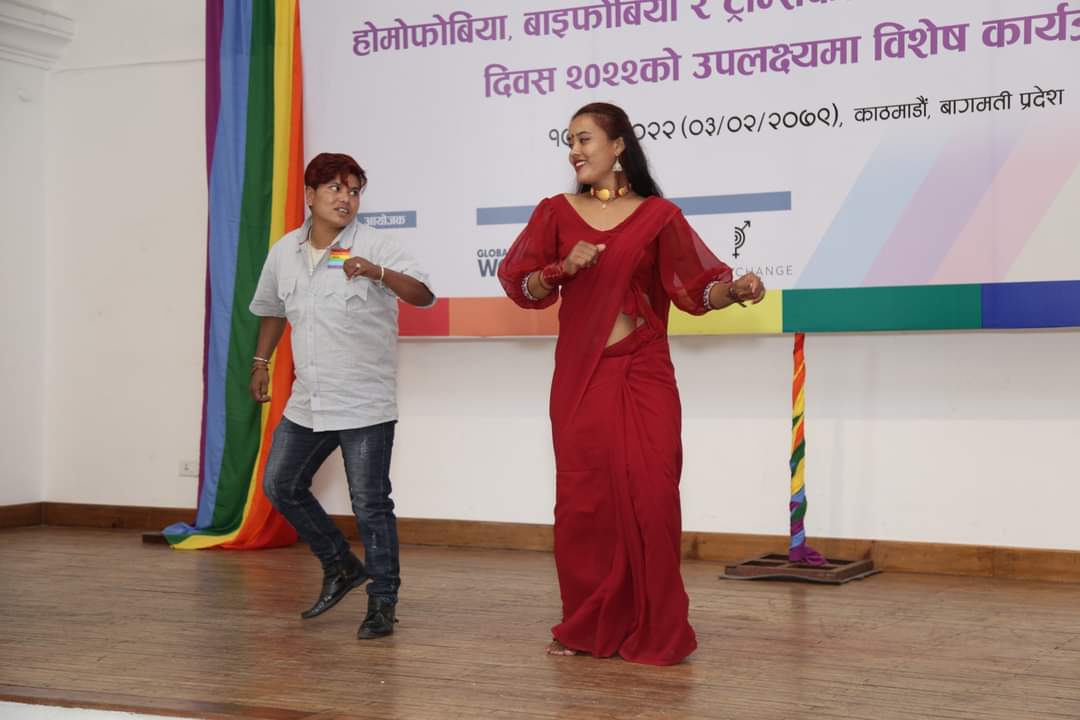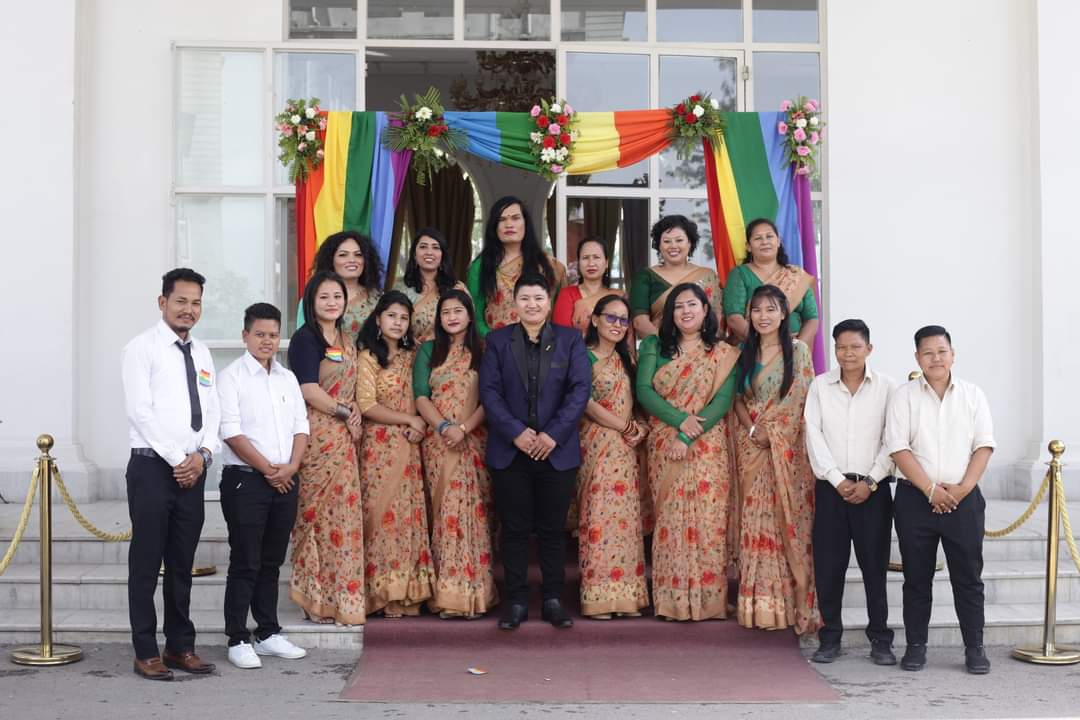This week on May 17 the LGBTIQA+ community marked the ‘International Day Against Homophobia, Transphobia and Biphobia’ (IDAHOTB) with the theme ‘Our Bodies, Our Lives, Our Rights’. On this day in 1990, the World Health Organization had declassified homosexuality as a disease. The day was proposed in 2004 and launched the following year. It’s celebrated in 130 countries despite same sex activities being a criminal offence in over a quarter of these places. The LGBTIQA+ community feels celebrations like these are essential to create awareness about queerness so that there’s greater acceptance of all kinds of identities and choices. It’s also an opportunity to start a conversation with policymakers, media, and the public.
Laxmi Ghalan, founder and president of Mitini Nepal, an NGO working for the rights and dignity of Lesbian, Bisexual and Transgender people since 2006, says IDAHOTB is a much-needed movement for a liberal society. “It’s natural to fear what you don’t understand. Events such as the international day is a chance for us to engage with and educate the public about different kinds of sexual identities,” she says. Ghalan, who faced a lot of difficulties when she came out more than two decades ago, says things are much better now but there are still limits to society’s acceptance. Forcing people to change their mindsets will only lead to resistance and retaliation. The solution can only be gradual information dissemination aimed at educating people about the LGBTIQA+ community.
Our society is still largely homophobic, albeit less obviously so. Parents who accept their queer children often tell them to keep it a secret from their extended families and friends. The disdain for homosexuality is evident by the way police treat the transgenders: They are beaten and declared the culprit in any squabble where the other parties are straight individuals. Not just in Nepal, the hate is palpable all over the world. Gender non-confirming people have been fatally shot or killed by various means.

In the US, a young Nepali gay aerospace engineer was killed in a hate crime, just months before flying to Nepal to meet his parents. In London, a 50-year-old was attacked during the Pride Parade. The incident left him on a wheelchair. Two men and a 17-year-old girl murdered a 54-year-old doctor working with the NHS in a homophobic attack at a park in Cardiff, Wales. The victims were like the rest of us—loving partners, children, parents, and friends. They had people who loved them, those they went back home to. They were robbed of their lives because someone thought they were an aberration, decided they didn’t ‘deserve’ to live.
Sarita KC, program officer at Mitini Nepal, says legal provisions to ensure their rights can, to a large extent, improve their situation. Nepal addressed the rights of the LGBTIQA+ community in its constitution, in Articles 12, 18, 42. That was a hopeful start. Disappointingly, there has been no reflection of that in our nation’s plans and policies—a clear proof of the government’s apathy to the community. However, speaking at an IDAHOTB event organized by Mitini Nepal in Kathmandu, Nanda Bahadur Pun, vice president of Nepal, said the LGBTIQA+ community should be able to live without discrimination and fear (of violence included) and that the country will support them in their efforts to create a more equal society. “We must all try to understand the feelings and sexualities of the LGBTIQA+ people. We must treat them with love and respect,” he said.
But rigid social, cultural and religious practices pose various constraints. LGBTIQA+ people aren’t considered ‘normal’ because their nature goes against ‘how things should be’ as mandated by our beliefs. If it translates into actual action and law—a big if—the vice president’s commitments could pave the path for an inclusive society where the LGBTIQA+ community is able to live with dignity. The LGBTIQA+ people, across ages and from all walks of life that ApEx spoke to at the event, were filled with hope. Pun’s presence at the function signifies a new beginning, they said. They agreed it feels like Nepal is finally recognizing them as its citizens.

Sunita Lama, transgender activist, says most of the problems of the community stems from the fact that people look at them with disgust. Homophobia has its roots in society's treatment of them as outliers or, worse, unwanted beings. This could change if the government makes provisions for their safety and rights. Lama agrees with Ghalan that you can’t force acceptance but rules to dictate how people should behave could reconfigure their thinking in the long run, effectively doing away with the disdain for the community.
Neelam Poudel, make-up artist and transgender activist, says the community also needs to try harder to make people understand and accept them. It’s easier said than done but events like the international day that increases their visibility and shows a collected front could jog the society’s conscience. “Many times, we hide and shy away from expressing ourselves, fearing what people will say. That prevents us from leading good lives. Our celebrations and ceremonies are times when we can be uninhibited and show people that we are just like everybody else,” she says.
For far too long, the LGBTIQA+ people have been deprived of what is essentially a basic human right—the freedom to live as you choose. As Ghalan says, everyone should get to live their lives according to their wishes. What’s the point of it otherwise? As it is, each individual of the community is already battling a horde of problems, from stress and mental health issues to lack of jobs forcing many of them into sex-work. A hostile environment makes an already difficult situation worse. “Homophobia tears our society apart by pitting us against each other. The community and the government must work hand in hand to foster a better environment, one that allows us to coexist in peace,” says Ghalan.











